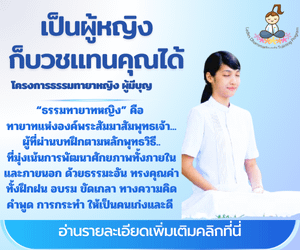การประสบความสำเร็จหรือล้มเหลวในชีวิตไม่ได้ขึ้นอยู่เพียงแค่ความพยายามหรือความสามารถทางกายและใจเท่านั้น แต่ยังมีสิ่งที่เรียกว่า “กรรม” ซึ่งเป็นผลของการกระทำในอดีตชาติที่ส่งผลมาถึงชาติปัจจุบันอีกด้วย หลักพระพุทธศาสนาสอนว่า “กรรม” เป็นส่วนสำคัญในการกำหนดเส้นทางชีวิตของแต่ละคน ซึ่งส่งผลให้บางคนเกิดมาพร้อมความมั่งคั่ง ในขณะที่บางคนเกิดมาในครอบครัวที่ขาดแคลน
กรรมข้ามชาติและการสร้างบุญในชาตินี้
บุญและบาปที่เกิดขึ้นจากการกระทำในชาติก่อนย่อมส่งผลเต็มที่ในชาตินี้ กล่าวคือ ถ้าในอดีตเราได้ทำความดี สร้างบุญกุศลไว้มาก ผลบุญนั้นก็จะนำพาชีวิตให้พบกับความสำเร็จ ความราบรื่น และโอกาสดี ๆ มากมาย ในขณะที่การทำบุญในชาตินี้จะช่วยสนับสนุนชีวิตเพียงส่วนหนึ่งเท่านั้น ตามหลักพุทธศาสนากล่าวว่า บุญที่สร้างในชาตินี้จะมีผลประมาณ 20 เปอร์เซ็นต์ในการสนับสนุนเรา แต่ผลบุญจากชาติที่แล้วยังคงเป็นส่วนสำคัญที่กำหนดชีวิตของเรา
บุญบาปและความสำเร็จของชีวิต
ความสำเร็จหรือความล้มเหลวที่เกิดขึ้นนั้น มีบุญและบาปเป็นแรงขับเคลื่อนอยู่เบื้องหลัง หลายคนที่ประสบปัญหาในชีวิต ไม่สามารถหาทางออกได้เพราะขาดความเข้าใจในหลักการของกรรม และไม่สนใจศึกษาแนวทางที่ถูกต้อง ทำให้หลงทางและใช้ชีวิตผิด ๆ การมีเพื่อนหรือกัลยาณมิตรที่ดีคอยชี้แนะจึงเป็นสิ่งสำคัญอย่างยิ่ง เพราะการได้อยู่ใกล้ผู้รู้สามารถช่วยให้เรามีทิศทางที่ถูกต้องในการสร้างบุญและหลีกเลี่ยงบาปได้
การสร้างบุญเพื่อผลดีในชาติต่อไป
ผลบุญที่เราสร้างในชาตินี้จะเป็นทุนสนับสนุนให้ชีวิตในภพหน้าของเราดีขึ้น คนรวยที่ไม่สร้างบุญในชาตินี้ อาจพบกับความขัดสนในชาติต่อไป ในทางตรงข้าม คนที่ขยันทำบุญแม้เกิดมาในฐานะที่ยากลำบาก ย่อมมีโอกาสที่ชีวิตในภพหน้าจะได้รับผลบุญนั้น ทำให้พบกับความเจริญรุ่งเรือง
บทสรุป
ในหลักพระพุทธศาสนา กรรมและผลของการกระทำทั้งในอดีตและปัจจุบันเป็นสิ่งที่ควบคุมเส้นทางชีวิตของเรา การทำความดีและสะสมบุญคือการสร้างทุนชีวิตในอนาคต ดังนั้น การมีกัลยาณมิตรและการศึกษาธรรมะจะช่วยให้เรามีแนวทางที่ถูกต้องและมีชีวิตที่ดีขึ้น
Success or failure in life isn’t solely determined by personal effort or mental ability. Buddhism teaches that karma, or the results of our past actions, plays a major role in shaping our lives. This karma from past lives can bring wealth and privilege to some while placing others in poverty and hardship.
Karma Across Lifetimes and Creating Merit in This Life
The merits and demerits accumulated from previous lives significantly influence our current lives. If we accumulated good karma in our past lives, this merit manifests as opportunities, ease, and success. While creating good deeds in this life helps support us, Buddhism teaches that the benefits we receive from current actions make up only around 20 percent of the influence on our lives. The remaining influence is largely the result of past karma.
The Role of Merit and Demerit in Life Success
The foundation of success or struggle is driven by the presence of merit or demerit. Many people face difficulties without understanding the role of karma and may fail to seek proper guidance, leading them to live in ways that may worsen their situation. This is why having friends or wise mentors, known in Buddhism as “kalyanamitta,” is essential. A knowledgeable friend can help steer us toward beneficial actions that accumulate merit and away from harmful ones.
Creating Merit for Positive Outcomes in Future Lives
The merit we generate in this life serves as a foundation for our next life. Wealthy individuals who neglect to create merit may face hardships in their future lives. Conversely, those who make a consistent effort to do good deeds, regardless of their current status, can improve their circumstances in future lives.
Conclusion
In Buddhism, karma and the consequences of our actions—both past and present—shape our path in life. Doing good and accumulating merit build a foundation for a prosperous future. Thus, having kalyanamitta, seeking guidance, and following the teachings of Buddhism can lead to a fulfilling and positive life journey.


















